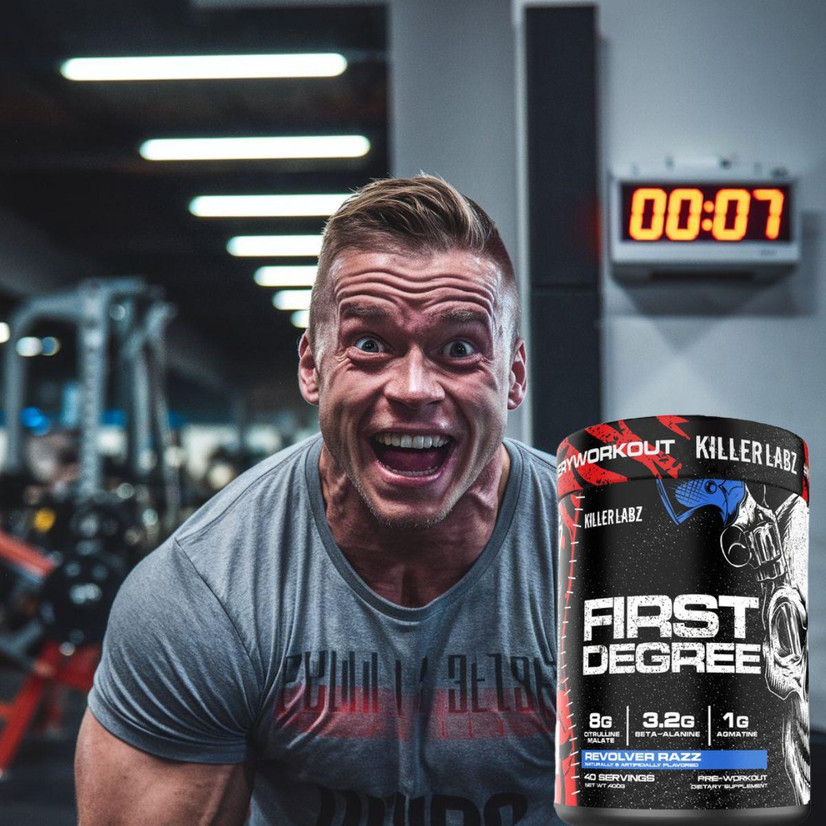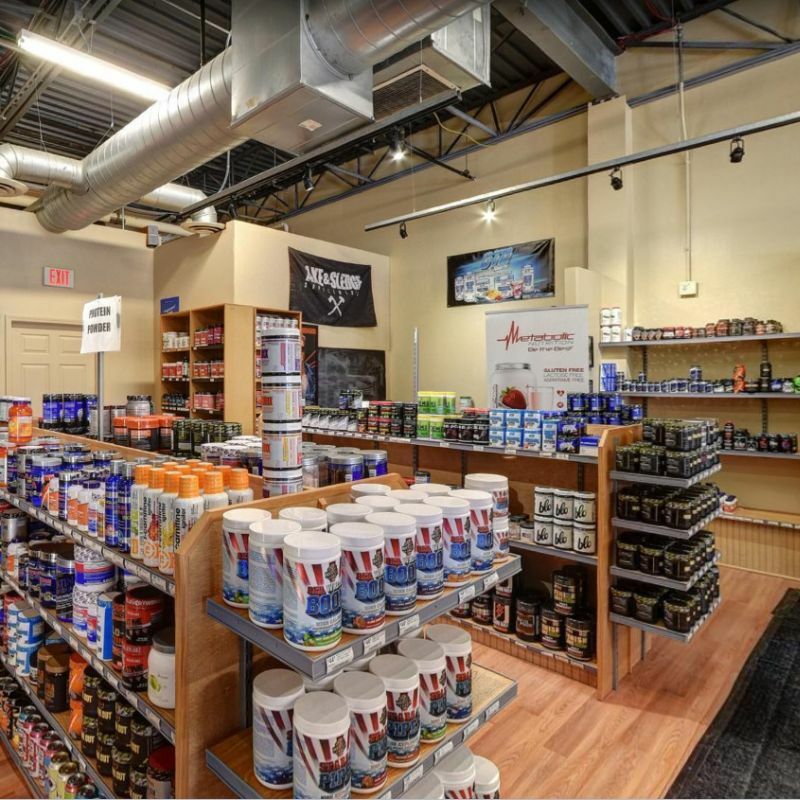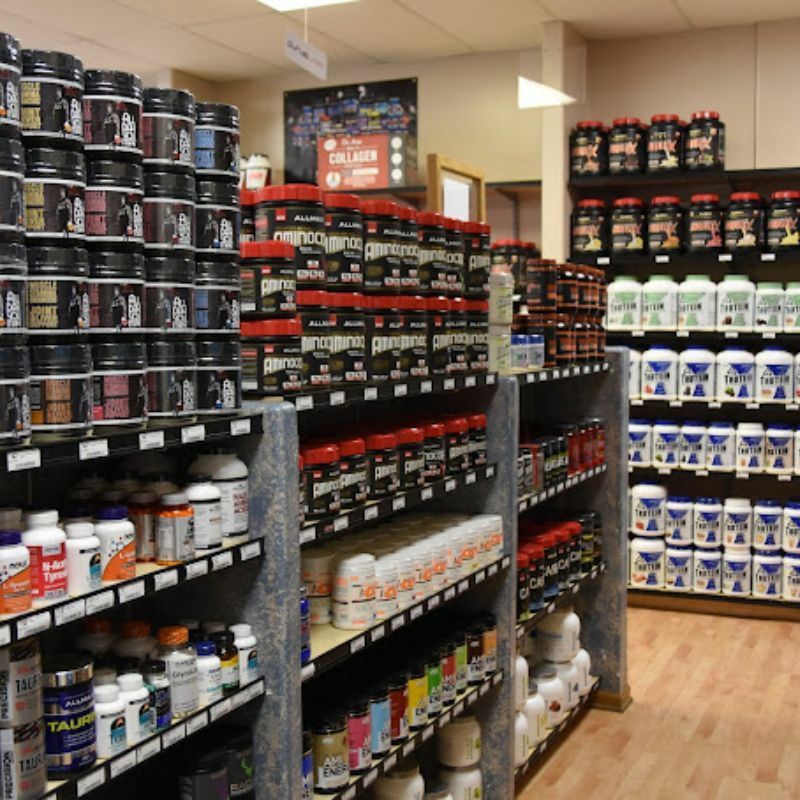How Long Does a Preworkout Take to Kick In
A commonly asked question online is How Long Do Preworkouts take to kick in, so in today's post we're going to answer that question for you so next time you reach for a preworkout you know how soon to take it before heading to the gym to make sure it's kicked in and you get the maximum effectiveness during your workout.
The time it takes for a preworkout to kick in depends on several factors including the specific ingredients in your preworkout, your bodies metabolism, and whether you've eaten anything prior to taking the preworkout. Let's dive into how these factors influence the timing and the effectiveness of popular preworkout ingredients.
Preworkout Ingredients & Their Timeline
Caffeine (15-45 Minutes) Caffeine is one of the most well known stimulants in preworkouts and it's responsible for increasing energy, focus, and alertness making it a staple in most preworkout supplements. Generally caffeine starts to kick in within 15-45 minutes after taking it. The peak concentration in your bloodstream occurs around the 30 mnute mark which is why it's generally recommended to take a preworkout 20-30 minutes prior to working out.
How Caffeine Works: Caffeine works by blocking adenosine receptors in the brain which prevents drowsiness and ramps up your alertness and energy levels. How quickly you feel the effects of caffeine depend on the type of caffeine ie caffeine anhydrous vs caffeine citrate vs dicaffeine malate, with caffeine anhydrous being the fastest acting. It also depends upon your metabolism and caffeine sensitivity. If you're particular sensitive to caffeine you may feel it sooner and stronger where as those with a higher tolerance will take longer to feel its effects.
Citrulline Malate (30-60 Minutes) Citrulline is another staple in preworkout supplements along with caffeine and its included in preworkouts for its ability to boost nitric oxide levels and enhance blood flow. This leads to better muscle pumps and improved endurance. The effects of citrulline usually kick in between 30-60 minutes after taking it.
How Citrulline Malate Works: Citrulline converts to arginine in the body which helps to increase nitric oxide prdouction. This doesn't give the same immediate jolt that caffeine does but builds up gradually leading to improved exercise performance as your workout progresses. Citrulline is also a key player in reducing post muscle soreness after your workout.
Beta Alanine (20-40 Minutes) Beta Alanine is another popular ingredient in preworkout supplements and is responsible for that signature "tingling" people love. Many users say they enjoy preworkouts with Beta Alanine because that's when they know or how they know their preworkout has "kicked in". While many love Beta Alanine, some of us hate it, myself included, although this is such a popular ingredient it can be a struggle finding a preworkout that doesn't contain Beta Alanine. If you're like me checkout our collection of Preworkout Supplements WIthout Beta Alanine. Beta Alanine kicks in around 20-40 minutes after taking your preoworkout and aside from just giving you "The Tingles" it helps buffer lactic acid in your muscles allowing you to push through longer more intense workouts, it's also known to improve endurance.
How Beta Alanine Works: Beta Alanine works by increasing carnosine levels which helps buffer acidity in muscles. While you might feel the tingles quickly, the real performance benefits such as improved endurance and reduced muscle fatigue will be felt later in your workout.
Betaine (30-60 Minutes) Betaine is less talked about than Caffeine, Citrulline and Beta Alanine but it is a common ingredient in preworkouts and helps improve strength and power output by supporting cellular hydration and muscle protein synthesis. Like Citrulline Betaine takes about 30-60 minutes to kick in.
How Betaine Works: Betaine supports water balance in cells which improves hydration and supports improved muscle endurance and strength. The effects of Betaine are not as immediate as caffeine but provide longer term benefits during tough workouts.
Metabolism & Individual Factors
Not everyone feels the effects of a preworkout at the same time, for some they may kick in faster and for others they may take longer to kick in. These factors include...
Metabolism: Your metabolic rate plays a huge role in how fast the active ingredients in a preworkout are absorbed and hit your system. People with faster metabolism may absorb and process the ingredients more quickly which leads to a faster onset of effects. Those with slower metabolism may find it takes longer for their preworkout to kick in. By better understanding how this and other factors affect how quickly your preworkout kicks in you can take your preworkout at a specified time before your workout to maximize its effectiveness.
Body Size: The larger and heavier you are the more time and higher doses will be required to feel the same effects as smaller individuals. The more body mass you have the longer it may take for your body to distribute and utilize the active ingredients. Many preworkout instructions will advise you to begin with one scoop to assess tolerance and if needed move up to two scoops. If you're a larger, heavier or taller individual you may want to up your dosage to the two scoop dosage after first assessing tolerance.
Caffeine Sensitivity: Caffeine tolerance varies from person to person. If you're sensitive to caffeine and/or other stimulants it's often referred to as being "Stim Sensitive". If you're stim sensitive you may experience jitters or even anxiety after taking a preworkout while those who are more stim tolerant or consume a lot of caffeine may take longer to feel it's effects. This isn't always true though, even as a big coffee drinker I'm still fairly stim sensitive when it comes to taking preworkouts.
Fasting Vs. Fed State: Whether you've eaten or not prior to taking a preworkout will significantly impact how fast you feel it and how hard it will hit you. Taking a preworkout on an empty stomach can make the ingredients kick in faster as there's no food to slow absorption. It can however lead to discomfort or nausea for some users. If you've eaten a meal or snack it may taking longer for your body to absorb the preworkout but the slower absorption can help smooth out some of the jitters or crash from caffeine.
Other Relevant Factors
Hydration Levels: Dehydration can make it harder for your body to absorb and process the ingredients in a preworkout so it's important to stay hydrated when taking preworkout supplements. In addition to supporting absorption many ingredients in preworkouts are meant to pull water into and hydrate the muscles so when taking ingredients like Citrulline, Arginine, and particularly Glycerol its important to drink plenty of water.
Stacking Ingredients: If you're combining multiple supplements or taking a preworkout with a lot of ingredients at hefty dosages it could speed up or slow down how the effects depending upon how these ingredients interact.
Conclusion
So to wrap up, most people will feel their preworkout kick in within 15-45 minutes with caffeine providing the initial boost and other ingredients like citrulline and betaine working in the background for enhanced performance and improved endurance. Keep in mind timing will vary based on metabolism, body size and caffeine sensitivity as well as if you've eaten prior to taking your preworkout or taken eaten a preworkout snack. Experimenting with timing and knowing how your body responds can help you optimize your workout routine for the best workout results.
†The content of this blog post is intended solely for reference and entertainment purposes. We do not offer medical advice or specific guidance regarding the products discussed. Our insights are based on a combination of anecdotal experiences, online studies/reviews, manufacturer details, and customer feedback. While we strive to present accurate and current information, we cannot assure its completeness or its alignment with the most recent product formulations or data. For any concerns or up-to-date information, we recommend visiting the manufacturer's website directly. The opinions and information provided here do not necessarily reflect the views of Best Price Nutrition; they represent the perspectives and information from the manufacturers and users. Furthermore, these statements have not been evaluated by the Food and Drug Administration. The products mentioned are not intended to diagnose, treat, cure, or prevent any disease or illness.
Recent Posts
-
Can Women Take Primobolan?
Methenolone, better known as Primobolan is one of the safer anabolic steroids for women, but that do
-
The Best Protein Powders For Bulking
Best Non-Mass Gainer Protein Powders For Bulking Whether your a hard gainer who struggles to put on
-
Top 3 Post Cycle Therapy Supplements For Prohormone Users
What is a PCT? PCT is short for Post Cycle Therapy, a supplement regimen used after a prohormone, st











